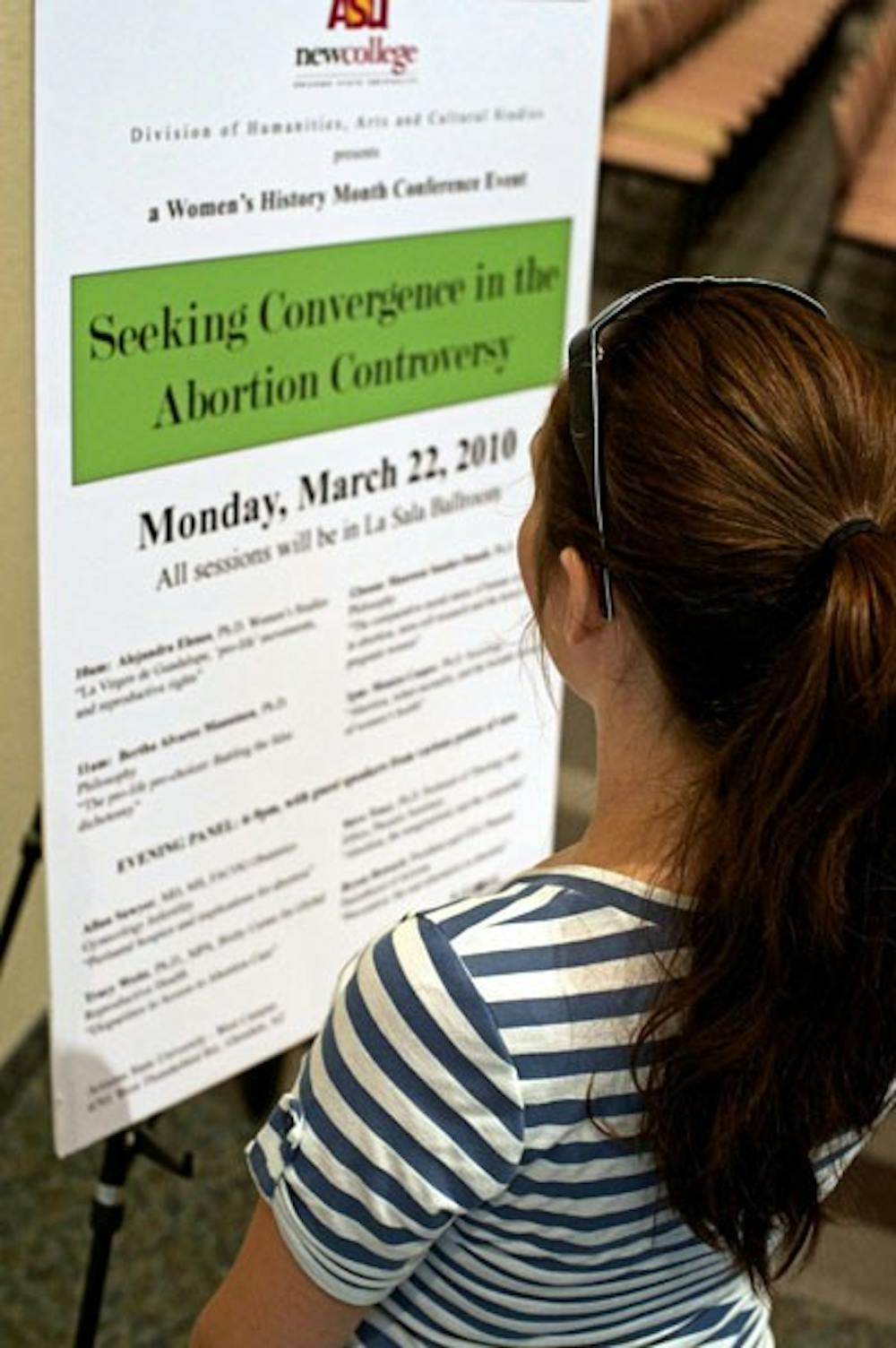Abortion has always been a highly debated topic, so to commemorate Women’s History Month, ASU’s West campus held a special all-day conference event to have an open dialogue on the controversial subject.
Monday’s event, “Seeking Convergence in the Abortion Controversy,” was held in the La Sala Ballroom. It featured lectures by ASU faculty members during the day and was followed by presentations and discussions by experts in the community in the evening.
Bertha Alvarez Manninen, assistant professor of philosophy, gave a presentation entitled “The pro-life pro-choicer: Battling the false dichotomy,” and is a pro-choice advocate.
“Women possess a right to abortion because they have the right to decide whether they want to use their body or not,” she said.
One of the arguments “pro-lifers” have against abortions is that the mother often grieves after the abortion process, she said.
“There is a need to grieve abortions, you can grieve without regrets,” she said. “Abortion is a loss, why can’t they feel that way?”
Pro-choice means protecting any choice a woman makes, she said.
Maureen Sander-Staudt, an assistant professor of philosophy who is pro-life, gave a presentation on the moral status of the human embryo.
“Just because a woman decides she wants to have an abortion won’t necessarily mean she is morally justified to do so,” she said.
The authority of a pregnant woman to assign a moral status to the embryo can be ethically promising but also problematic, she said.
Rather than debating where human life begins, she concedes basic values to all stages of embryonic life forms worthy of respect and consideration, she said.
Sander-Staudt’s next session was called “Abortion and the Ethics of Care.”
Ethics of care is a theory about what makes actions right or wrong, she said.
“Care ethics realistically highlights the moral importance of nurturing and caring relationships that may or may not exist between embryos and their mothers and fathers,” she said.
The Division of Humanities, Arts and Cultural Studies in ASU’s New College of Interdisciplinary Arts and sciences sponsored the conference. The Arizona Humanities Council also supported the event.
Lizette Cureno, a religion and applied ethics senior, attended the conference and is writing her thesis on the correlation between spirituality and rape.
Abortion constantly comes up in that subject, she said.
“[Abortion] is a highly debated issue … Should the woman carry the infant who is the result of a sexual assault?” she said.
Cureno said she is pro-choice because she is a survivor of a sexual assault.
“I don’t think anyone can truly say whether or not they can go through it until they are in the situation,” she said.
Reach the reporter at mmbarke1@asu.edu





